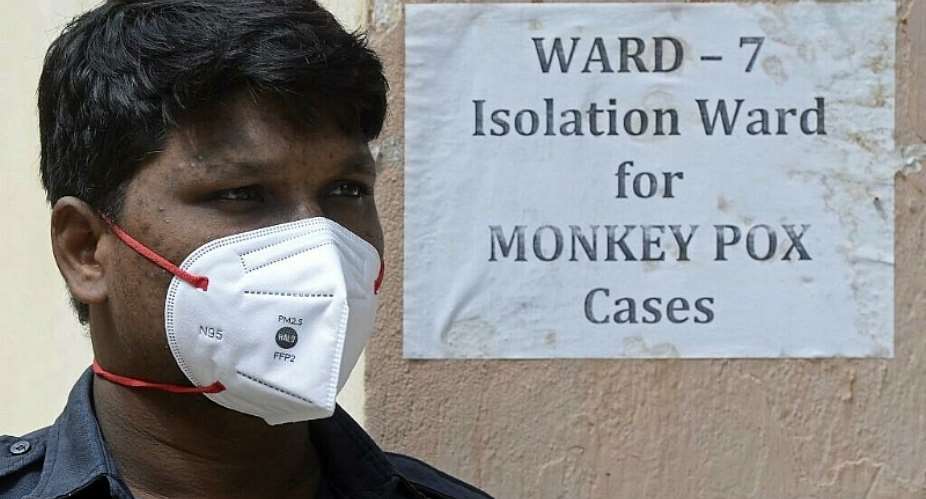India reported its fourth case of monkeypox infection after a 34-year-old-man from Delhi with no travel history tested positive, making him the first known case of local transmission.
The southern state of Kerala reported a third case of monkeypox, in a traveller from United Arab Emirates, who reached the State on 6 July.
"All primary contacts are under observation," said state health minister Veena George.
George said the condition of the two other individuals diagnosed with monkeypox continued to be stable.
The World Health Organisation (WHO) has sounded its highest level of alarm for monkeypox, declaring it a 'Public Health Emergency of International Concern'. The same declaration was used for Covid-19 in January 2020.
The threat level, however, is moderate for all regions across the world - barring Europe, where it is assessed to be high.
Concerns about spread
A team has been sent to Kerala to collaborate with state authorities in implementing public health measures. Furthermore, an alert has been sounded in all 14 districts, and help-desks set up at all four airports in the state.
The cases have raised concerns about the spread of the virus, but experts believe that as close contact is the only mode of transmission, the disease can be controlled. They have asked people not to panic.
Monkeypox is a viral zoonotic disease with symptoms similar to smallpox, although with less clinical severity.
"Monkeypox is not a fast-spreading disease. It is also not much of a lethal disease. There were no deaths in US or Europe among about 6000 known cases this year," said Rajeev Jayadevan, a medical expert associated with the India medical task force on Covid. He was speaking before the authorities in Spain announced the deaths of two sufferers
"It is true that in places in Africa there was certain mortality, but that was primarily the Congo strain of this virus which is not what is circulating elsewhere."
As of 23 July, there were 15,600 confirmed cases of the viral disease across the world, with 65 countries reporting infections.
In Europe, France and Germany, Spain and the United Kingdom have recorded the highest numbers of cases: 1,453, 2,191, 3,125 and 2,137 respectively.
Since early May, monkeypox has been spreading rapidly around the world, mainly among gay and bisexual men.
Transmission of monkeypox
The Centers for Disease Control and Prevention (CDC), America's health protection agency, states that the disease that causes pimple or blister-like lesions and flu-like symptoms spreads through close contact.
That includes direct physical contact with lesions as well as "respiratory secretions" shared through face-to-face interaction, and touching objects that have been contaminated by monkeypox lesions or fluids. The virus may also pass to a foetus through the placenta.
"Let us also not panic here. From all available reports it is clear that the monkeypox virus doesn't spread nearly as readily as Covid, is transmitted through body fluids and hence infectious spread is through close contact," said infectious diseases expert Suresh Kumar.
Public health experts pointed out that apart from disease surveillance, the government should map out production of smallpox vaccine in case there is a wider spread of monkeypox within the general population.
People exposed to the virus are often given one of several smallpox vaccines, which have been shown to be effective against monkeypox.
Adequate readiness, they pointed out, should be the formula in dealing with monkeypox.





 Tuesday’s downpour destroys ceiling of Circuit Court '8' in Accra
Tuesday’s downpour destroys ceiling of Circuit Court '8' in Accra
 SOEs shouldn't compromise on ethical standards, accountability – Akufo-Addo
SOEs shouldn't compromise on ethical standards, accountability – Akufo-Addo
 Father of 2-year-old boy attacked by dog appeals for financial support
Father of 2-year-old boy attacked by dog appeals for financial support
 Jubilee House National Security Operative allegedly swindles businessman over sa...
Jubilee House National Security Operative allegedly swindles businessman over sa...
 Nobody can order dumsor timetable except Energy Minister – Osafo-Maafo
Nobody can order dumsor timetable except Energy Minister – Osafo-Maafo
 Mahama wishes National Chief Imam as he clock 105 years today
Mahama wishes National Chief Imam as he clock 105 years today
 J.B.Danquah Adu’s murder trial: Case adjourned to April 29
J.B.Danquah Adu’s murder trial: Case adjourned to April 29
 High Court issues arrest warrant for former MASLOC Boss
High Court issues arrest warrant for former MASLOC Boss
 Align academic curriculum with industry needs — Stanbic Bank Ghana CEO advocates
Align academic curriculum with industry needs — Stanbic Bank Ghana CEO advocates
 Election 2024: We'll declare the results and let Ghanaians know we've won - Manh...
Election 2024: We'll declare the results and let Ghanaians know we've won - Manh...
